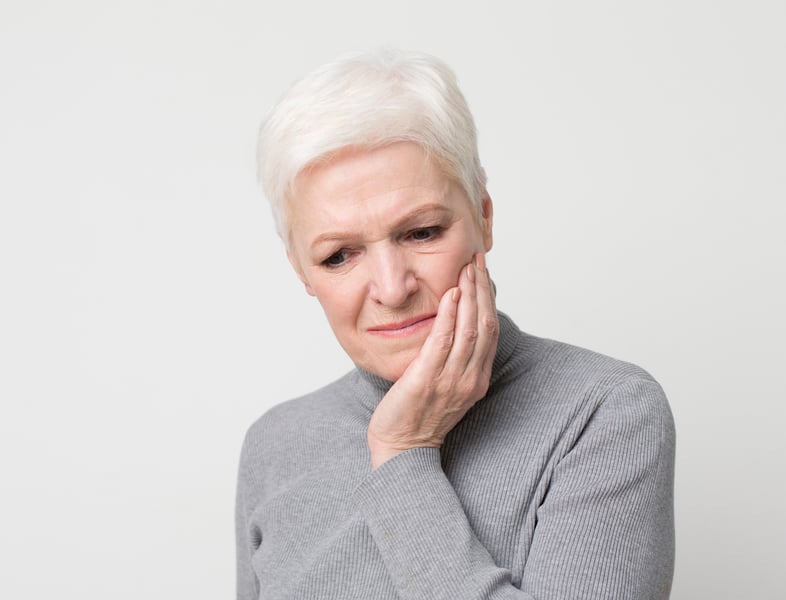Get Healthy!

- Robert Preidt
- Posted May 17, 2022
Menopause Might Worsen Jaw Pain in Women
Estrogen loss during menopause may worsen women's pain from a jaw disorder, a new study warns.
Temporomandibular disorder (TMD) causes pain in the jaw joint and affects an estimated 4.8% of U.S. adults, or about 12 million people.
Some estimates suggest that as many as 15% of U.S. adults have at least one symptom of TMD, which is the second most common type of musculoskeletal pain, after low back pain.
Women are two times more likely than men to have TMD, which has led some experts to suggest that hormone changes play a role in the disorder.
There is limited research on TMD during menopause, but a 2018 study found that TMD was more common and severe in premenopausal than postmenopausal women.
In this new study, researchers in Brazil evaluated the intensity of TMD-related pain among women in late menopause, early post-menopause and late post-menopause.
The investigators found that TMD-related pain and menopause symptoms such as hot flashes are primarily associated with late menopause, and ease with age and progression through post-menopause.
Education levels and ethnicity also influence TMD symptoms during early post-menopause, according to the authors of the study published online May 10 in Menopause, the journal of the North American Menopause Society (NAMS).
The findings suggest that women should be evaluated for TMD as they approach menopause, study author Alessandra Pucci Mantelli Galhardo, of the University of Sao Paulo in Brazil, and colleagues concluded.
"This study reinforces the known relationship between sex steroids, specifically estrogen, and the experience of pain. These results are unique in showing that TMD symptoms are linked with menopause symptoms and manifest differently across the menopause stages, with more prominent TMD and menopause symptoms occurring in the menopause transition compared with the years post-menopause," said NAMS medical director Dr. Stephanie Faubion.
"More study is needed to identify factors, such as low education, that influence these associations as well as strategies to mitigate bothersome TMD and menopause symptoms in midlife women," Faubion added in a NAMS news release.
More information
There's more about TMD at the U.S. National Institute of Dental and Craniofacial Research.
SOURCE: North American Menopause Society, news release, May 11, 2022
